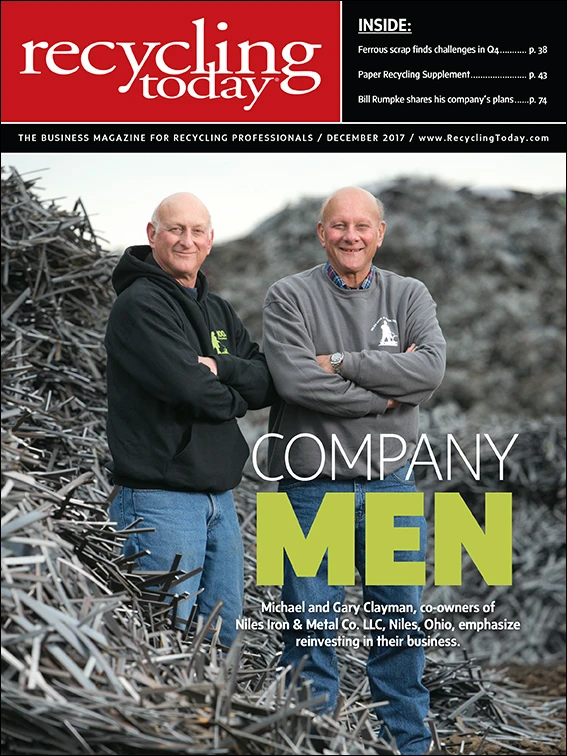
Mike Baxter makes his living recycling plastic film in the United Kingdom. While he faces the same supply, demand and profitability challenges common to all recyclers, Baxter says his biggest concern involves an orchestrated movement against plastic packaging.
Speaking at the 2017 Paper & Plastics Recycling Conference Europe, held in Warsaw, Poland, in November, Baxter urged attendees around the world to begin paying more attention to the media’s coverage of plastic’s role in the environment. He characterized such coverage in the U.K. as
More than 90 nongovernmental organizations (NGOs) have created an alliance housed at www.breakfreefromplastic.org that aims to hold corporate boards of directors responsible for using plastic packaging that creates litter on land or in the world’s oceans.
While recyclers might like to think they offer the solution to this problem, the NGOs involved in this alliance are skeptical. “For years, the plastics industry has been telling us that all plastics are recyclable, but what we find in the field demonstrates that we cannot recycle our way out of the plastic pollution problem,” Martin Bourque of the Washington-based Ecology Center says in the news release introducing the Break Free from
Plastic packaging designed in the United States, which has established waste and recycling infrastructure, is becoming a long-term litter problem when used in less developed nations.
The Ellen MacArthur Foundation, a U.K.-based group that has garnered significant corporate support globally, endorses a plan that will try to lift the plastic industry’s global recycling rate from 14 percent to 70 percent.
Even the largely pro-recycling foundation, however, states that “the remaining 30 percent of plastic packaging, equivalent to 10 billion garbage bags per year, needs fundamental redesign and innovation.”
"While recyclers might like to think they offer the solution to plastic’s problem, many nongovernmental organizations are skeptical.”
Baxter’s call to action to recyclers is a familiar one often echoed by organizations such as the Washington-based Institute of Scrap Recycling Industries (ISRI): Business owners and managers need to get involved and tell their story to legislators and other policymakers.
Recyclers of materials ranging from steel, lead and cardboard to asphalt and concrete have good stories to tell of high recycling rates and closed loops that long precede the “circular economy” concept.
The story of plastic recycling is in a much earlier chapter of its development, and some of the current shortcomings are indeed alarming. For the story to get better, companies that have made investments to recycle plastic may well have to set aside some time and energy to protect those investments by providing their points of view in the public arena.

Explore the December 2017 Issue
Check out more from this issue and find your next story to read.
Latest from Recycling Today
- Athens Services terminates contract with San Marino, California
- Partners develop specialty response vehicles for LIB fires
- Sonoco cites OCC shortage for price hike in Europe
- British Steel mill’s future up in the air
- Tomra applies GAINnext AI technology to upgrade wrought aluminum scrap
- Redwood Materials partners with Isuzu Commercial Truck
- The push for more supply
- ReMA PSI Chapter adds 7 members





